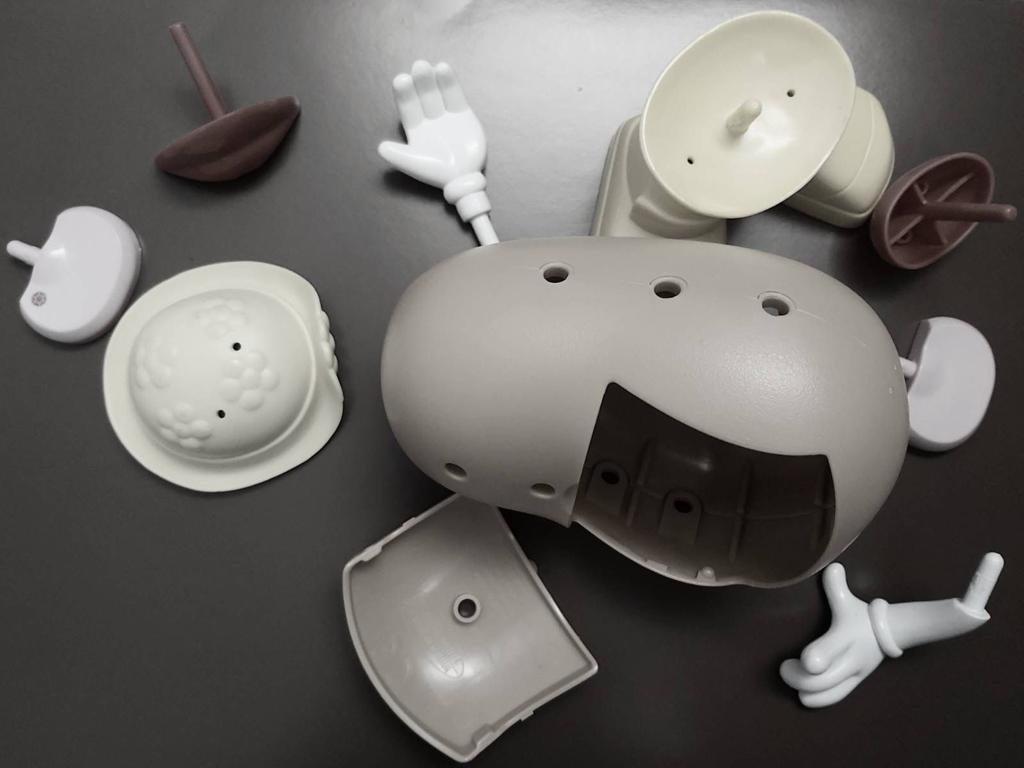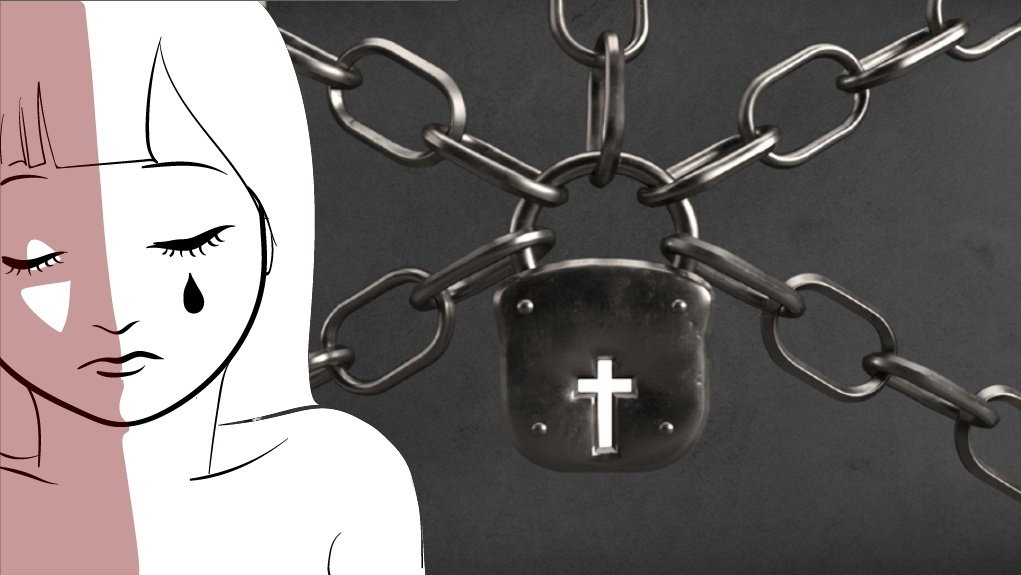Hilda (a pseudonym) was a young adult when she was sexually assaulted by someone she trusted.
“He’s a professional from whom I was seeking help,” she said, recalling the painful memory.
While she was conscious, she was unable to stop the perpetrator from committing sexual acts she did not consent to.
“It was very sudden and it’s like I didn’t know what was happening. I just froze and became sluggish,” she said.
A few months later, Hilda started feeling very tired and even incapacitated at times.
“I kept thinking I can actually report him to the police,” she said.
Not only did that permeate her thoughts during the day, but it also dominated her dreams at night.
Realizing she needed some help, she found a psychiatrist. She only told the doctor about her insomnia and was prescribed some sleep medication.
It was only later that she confided in her cell group leader at church about the sexual assault — which was not by a member of the church — specifically.
But the reaction she got was not what she expected.
“The cell group leader told me not to report the incident to the police as there is no need to seek justice on earth,” Hilda said.
“Instead, she made me read the Sinner’s Prayer.”
Hilda was shocked by what she heard but continued seeking help from the church, a registered and well-known church in Hong Kong which she had been attending for a few years.
“It was like a life preserver that I could hold on to. I was very confused and I chose to trust them,” she said.
From refuge to retraumatization
The cell group leader then took Hilda to speak to a male pastor in their church.
“He had this flippant attitude. I remember him saying something like, ‘Sexual assault? I’ve also been sexually assaulted before,’” she recalled.
Coupled with the fact that she was uncomfortable speaking to a man about the sexual violence she had encountered, the cell group leader then arranged for a female pastor from their sister church to counsel her.
“The first time we met, the female pastor took the sleep medication I was taking and threw it into the bin. Then she started shouting and speaking over the bin, saying how I was under the bondage of the medicine and how I had to declare that I don’t need to take it,” said Hilda.
During the sessions, she was also told she was possessed by demons and that she was unclean.
“They said the issue was with my sexual desire and how I needed to cleanse myself, but they did not say anything about the perpetrator,” she added.
For each meeting, she was locked up for many hours in a room, during which the pastor and her team prayed and read verses from the Bible in an attempt to “exorcize the demons.”
“They would pat my back and shout very loudly at me. It made me very scared and wonder if I was really in the wrong. They even told me this happened to me because of my family’s sin and how God hated me,” said Hilda, who has attended church since young.
After three sessions, her belief that God is love and justice was crushed thoroughly.
She stopped going to the meetings and cut ties with the church.
“I was so shattered until I couldn’t find the broken pieces,” she recalled.
Chained down by beliefs
While Hilda’s case is extreme, stories of schools and churches being ill-equipped in sex education and addressing the taboo subject are not uncommon in Hong Kong.
Many growing up in the city recall being played clips of abortions when they were students to warn them against pre-marital sex. There have even been accounts of some being forced to keep their eyes open throughout the videos.
Guidelines for sex education in schools were issued in 1997, but they have not been updated since then and had been taken down from the Education Bureau’s website a few years ago.
In 2008, the bureau introduced a new framework for moral and civic education in which the subject of sex education is only briefly mentioned.
A survey conducted by youth-oriented think tank MWYO on 5,516 secondary school students in 2021 found that 77 percent of upper secondary and 85 percent of lower secondary students received less than two hours of sex education a year.
More than two-thirds of the respondents also felt there was insufficient teaching of the topics that they were most interested in, including masturbation, LGBTQ issues, handling relationships and gender equality.
Fiona Wu, a registered social worker and certified sex therapist, said that since she was young, she has noticed that there is a big taboo attached to sex in Hong Kong, especially within Christian social circles.
“A lot of people around me experience a lot of shame or feel like they are sinning for having sexual desires, or wanting to explore their body,” said the therapist, who is also a Christian.
Now running a private practice, she said she has some clients who are Christians struggling with those sorts of issues.
“For example, I have this client who is married, but she does not feel like she should have sex with her husband,” she said.
“When her husband is asleep, she will touch herself and be in tears. She feels very ashamed about having sexual desires.”
To help her clients, Wu employs various techniques, including meditation, photo journaling, drawing, and mindfulness and focusing training.
“For sex therapy, we will touch on not only the physiological and personal but also spiritual and socio-cultural aspects, such as religion,” said Wu.
These include helping clients work through twisted views about their body, or even questions about whether they deserve to be happy and loved, and reconciling these with their cultural background, she explained.
Evolving with the times
Wu is part of a growing number of progressive Christians who want to get people to talk about sex more seriously.
“Over the years, I’ve reflected on theology and how we view sexual desires and the body. I’ve met some progressive theologians who believe God created people and will embrace diversity. This is an approach I now take,” she said.
Christopher Yiu, a part-time teacher for a course on sex therapy in church settings at the Chinese University of Hong Kong’s divinity school, is one such advocate.
Trained as a general surgeon, Yiu started exploring and studying sex therapy around 2003 and 2004, when a pastor at his church brought up the topic of a sex education course and sex counseling for their congregation after seeing such a need.
He and his wife — who is a social worker by training — found out about a sex therapy training course, which was then recently brought in from the US. So they signed up for and completed the course and are now certified sex therapists with The Hong Kong Association of Sexuality Educators, Researchers and Therapists, in which he also serves as treasurer.

While Yiu has clients from different backgrounds, with him being a church elder, many of them tend to be Christians.
“There is a brother at my church who was suffering from sexual addiction,” said the therapist.
“He and his then-girlfriend had a lot of pre-marital sex and he also frequently masturbated.”
While it might be common for some churches to focus on the sin and punishment aspects, Yiu said it was more important to find out the underlying issue.
“Through our counseling sessions, we found out that he had low self-esteem and did not know how to handle pressure at work,” said the therapist.
“His then-girlfriend was also more controlling. Feeling like their relationship would not last, he wanted to use sex to secure their relationship.”
Yiu said the anxiety over the power difference in the church brother’s relationship can also be seen in how he had become hooked on adult videos showing the man being aggressive at sex.
The therapist came up with some coping strategies to help his church brother build up his self-esteem.
“We need to give people like him support, and not punish them. Focusing on sin will chain them down,” he said.
Yiu’s church brother eventually got out of that relationship and is now happily married to a different woman.
The therapist said he believes that the church is also part of society and needs to evolve with the times.
“If what we believe is real and our God is real, the doctrine should be able to articulate different human experiences, including LGBTQ+ topics and social issues,” he said.
Picking up the pieces
While there has been progress in the Christian community and wider society in Hong Kong in addressing these taboo topics, Yiu said it has not come fast enough.
“Even if there is a change in attitude — which is also not fast enough — there is not enough trained manpower in sex therapy or education,” he said.
Yiu explained sex therapy or education requires different skill sets from other more mainstream types of counseling such as family and marital counseling.
He said The Hong Kong Association of Sexuality Educators, Researchers and Therapists hopes to train more sex educators in schools, churches and also the larger community in the future.
He and his wife will open a center in San Po Kong soon, which will offer not only counseling services, but also training for sex and family therapy.
As for Hilda, through an acquaintance, she was able to find a certified sex therapist, whom she has been going to for a few years now.
She said she has benefited from the sessions, especially in terms of being able to voice her feelings.
“My therapist will allow me to talk without criticizing,” she said.
“Now I can connect with my emotions. In the past, I always felt like I had to hold back my feelings, until I didn’t have any left. It’s like, because I’m a believer, I had to be very happy and joyful.”

Hilda has also learned to separate how she was affected by the sexual assault and how her experience with her former church hurt her — with the latter being more severe.
“I’ve made many detours,” she said. “My former church’s mishandling prolonged my path to recovery. We need to find professionals for such issues.”
While she admitted that she still has some way to go till full recovery, she said she is a lot more stable now.
“I feel like I really picked myself up,” she said.
Hilda, who now watches services online, also sees her relationship with God in a new light.
“People always try to interpret God and use the Bible to see what they want to see,” she said, adding this can be extremely hurtful when it is used to judge and put blame on others.
“Now I feel like I have to be more rational about my beliefs,” she said.





Reader Interactions